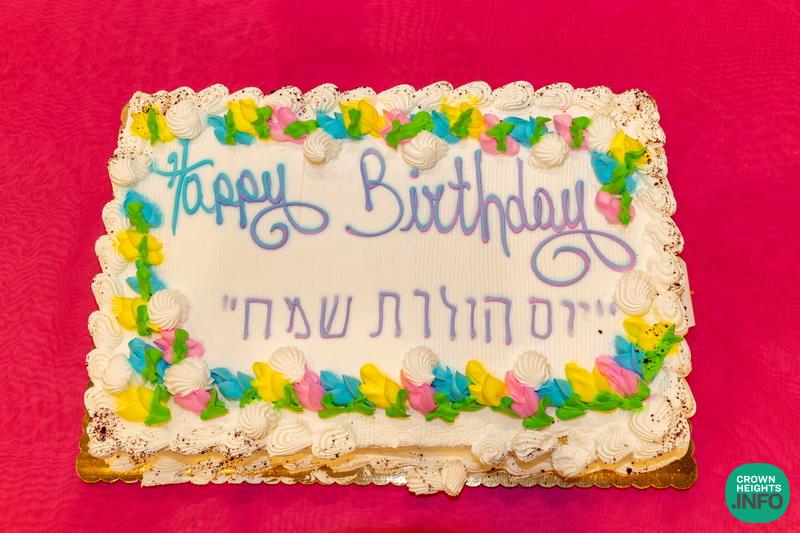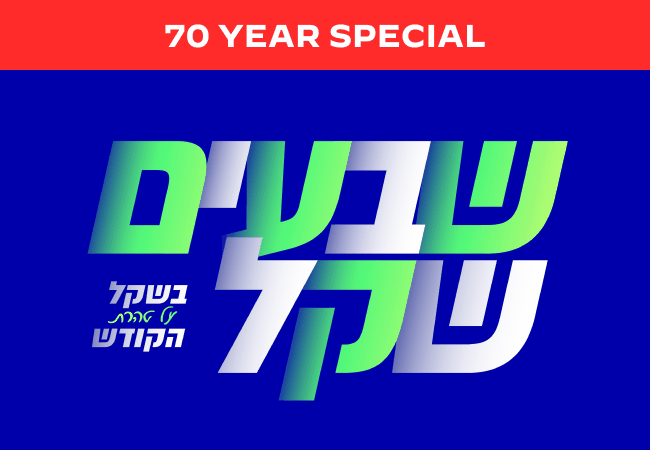
Weekly Story: Yom Holedes Celebrating Your Birthday
by Rabbi Sholom DovBer Avtzon
Being that today is my Yom Holedes and our Chazal inform us that everyone on their Yom Holedes their mazal is powerful and subsequently they have the ability to give brochos to others, therefore, I take the opportunity to bless each and every one of you together with the entire Jewish community, that Hashem should fulfill all of your prayers and wishes in completion, and that He takes each one of us out of our personal exile which will be followed immediately by the general Redemption of the entire Jewish Nation through Moshiach Tzidkeinu.
Subsequently I decided to post a thought on the concept of a person celebrating their birthday. As always, your comments and feedback are greatly welcomed and appreciated.
This week’s post is L’zechus my newly born granddaughter Chanah bas Devorah Leah, and may Hashem bless her parents to raise her and her siblings L’Torah, L’chuppah, u’limaasim Tovom, in excellent health and prosperity.
After the petira of the Rebbetzin, the Rebbe spoke about the importance of each person celebrating their Yom Holedes – birthday. This took many by surprise as the only time the Torah explicitly mentions celebrating a birthday is when it speaks about Pharoh’s birthday party, where he reinstated the chief Butler and hung the chief Baker.
In other places it’s not written openly, rather it is merely alluded to etc. Those times are when the person reached a milestone, as when Avrohom avinu (our forefather) made a celebration in honor of Yitzchok. Additionally, there are many stories about chassidim who would celebrate the day they had their first yechdus with the Rebbe as if it was their spiritual birthday.
The Frierdiker Rebbe notes that his personal tutor, the Rashbatz would celebrate and farbreng an entire week during Tishrei, as that is the time he had his first yechidus with the Rebbe the Tzemach Tzedek. And the gemorah notes about an Amora who made a celebration when he became 60 years old.
But as noted, those celebrations were connected to a specific experience or milestone in their life, such as celebrating a son’s bar mitzvah, while the Rebbe emphasizes that we should celebrate the fact that we were born.
On Yud Aleph Nissan 5743, the Rebbe addressed this very question and he explained that a person is born to accomplish something. Therefore, the emphasis is to encourage each one of us, even if we [feel that we] did not reach or achieve a milestone, we have something to celebrate, and that is that Hashem specifically chose our neshoma to be sent down into this materialistic world in order that it should accomplish a milestone.
So if Hashem gave us a mission, He definitely also gave us the capability of achieving complete success in fulfilling our mission, so the gathering is the stage or forum where we set out to accomplish it.
In that sicha, the Rebbe also addressed the question of how can we learn about making a celebration in honor of one’s birthday, if the only birthday celebration that is mentioned in the Torah is Pharoh’s celebration.
The Rebbe explained, being that that celebration occurred before Mattan Torah, in other words it took place before Hashem chose the Jewish Nation as His people, and the Torah will be given only to them, so then there is no difference between a Jew and a non-Jew. Furthermore, being that Mitzrayim was the strongest country at that time, and Pharoh was its King, so everyone, especially those who were living in Mitzrayim at that time, were under his control and supervision .
In other words, that applied to Yosef just like it applied to every Egyptian. So we see that it affects the Jewish people as well.
[Author’s note: if we take this a step further we see that it not only affected Yosef that he was freed from prison on that day, and was also appointed to become the Viceroy of Mitzrayim, but furthermore, it affected the whole Jewish Nation even though, Yaakov and his sons were then in EretzYisroel.As that appointment caused that Yaakov and his family entered Mitzrayim in honor and in a dignified manner, not as slaves or some other humiliating manner.]
So while the Rebbe writes in Hayom Yom, (entry 11th of Nissan), that a person should contemplate on the day of their birthday, of what they had accomplished and what they still have to accomplish in the coming year and later on, after the Rebbetzin’s petira he added a new dimension to one’s birthday, that it is a time to farbreng with others. It should become the springboard or platform from where you embark with vigor and set out to accomplish more than you already had.
We saw this by numerous Yud Aleph Nissan farbrengens, that the Rebbe requested bigger and bolder initiatives. The first one that I remember was in 5731, when the Rebbe requested the establishment of seventy- one new institutions.
A Taste of Chasidus Kirias Yam Suf – the splitting of the sea
The splitting of the sea occurred in the pre-morning hours of the 7th Day of Pesach. The possuk describes it as hufach yum la’yabusha – Hashem turned the sea to dry land.
In order to understand the meaning of this expression (and not that Hashem split the sea or that He saved the Jewish nation), we first have to understand what the “sea” and :dry land” symbolize.
Chassidus explains that our sages inform us that every creature that exists on land is also found in the sea. But there is a major difference between the fish in the seas and animals on the land. When one looks at the bodies of water, all they see is water, as the fish are submerged in the water. However, on earth, while every living creation was created from the sand, if they would be entirely submerged in the sand, they would not exist. The only way they exist is by being detached from their source and living independently.
Being that Chassidus brings out the deeper or inner meaning of everything, it explains sea and land as follows.
Creations in the sea realize that if they leave the water, they would cease to live. Therefore, they don’t stand out as separate entities of the water. Whereas, the living creations on the land feel that they are independent of their source and they can conduct themselves as they desire.
In essence, this represents two possible mindsets of a person: one that he is not an entity on his own, but is a creation of the Creator and subsequently conducts his life completely in accordance to Hashem’s desire, as Hashem expresses it in the mitzvos He commanded us in the Torah. In simple words this means, the person gives himself over completely to Hashem, as if he himself has no entity.
And then there is the second perspective, a person feels that he is an entity and does not humble his own desires to conform with what Hashem guides us to do and that is representative by the dry land, the person is dry and void from the life-line that is sustaining him.
So when the possuk states Hashem changed the sea to dry land, it is saying that even those that symbolize land and are dry, i.e. they have no feelings for the presence of Hashem, nevertheless, the mindset that is represented by the sea takes over. Meaning that they are elevated to the point that they realize that without Hashem they are non-existent, and therefore they completely nullify themselves just like the fish are not noticed from the top.
This explains a question that many commentaries ask; according to the opinion of tosafas, the Jews entered and exited the sea on the same side. So they ask, if so what was the purpose of splitting the sea?
Furthermore, we know that Hashem does not make a miracle for no reason, and especially so when it is a miracle that our sages describe it as a difficult one.
The explanation is, that splitting the sea was not just to show Hashem’s Power. Weather, weather, it was the way Hashem enabled us to receive the Torah. The Torah is Hashem’s Infinite Wisdom, and how can a creation who is finite (limited) be capable of comprehending infinite wisdom, especially if the person feels haughty and does not recognize that he is studying Hashem’s wisdom?
By splitting the sea Hashem revealed His essence. Not only was it revealed to Moshe and other great people among the Jewish people, but it was revealed to each and every individual as our sages say that even a maid servant was able to point to Hashem’s essence and declare Zeh Keli – this is my God! In other words, every entity was elevated to the point that they recognize that there’s only one true entity that gives them life and that is Hashem Himself.
Subsequently once they came to the actual realization, only then were thery able to receive the Torah. So while it wasn’t needed to save the Jews, it was needed for a very important purpose.
When Moshiach comes, may it be speedily in our days, once again there will be a splitting of the waters, but at that time the navi states that the river will split.
Chassidus explains that the sea represents Hashem’s wisdom which is in the supernal world of Atzilus, rivers represent a much higher level. Meaning when Moshiach comes a higher level of G-dliness would be revealed to everybody then what was revealed by the splitting of the sea.
Rabbi Avtzon is a veteran mechanech and the author of numerous books on the Rebeiim and their chassidim. He is available to farbreng in your community and can be contacted at avtzonbooks@gmail.com.














